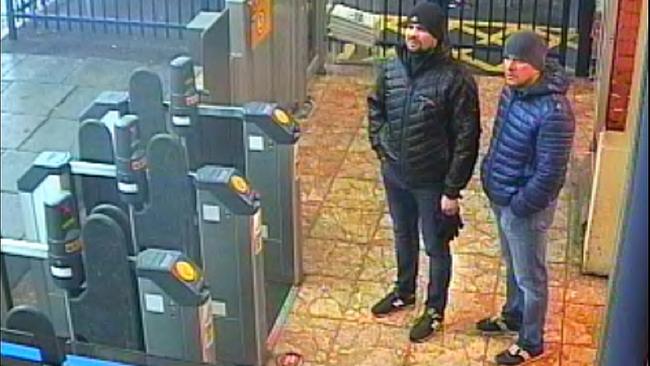Skripals ‘targeted five years before novichok attack’
A coroner will investigate Russia’s role in the novichok poisoning after being told operatives scoped out their targets up to five years before the attack.

A coroner will investigate the role of the Russian state in the novichok poisoning in Salisbury, England, after being told operatives scoped out their targets up to five years before the attack.
Heather Hallett widened the inquest into the death of Dawn Sturgess, a mother of three who was exposed to the nerve agent in a perfume bottle, to include an investigation into the source of the poison and Russian responsibility.
The inquest will also examine the activities of two Russian intelligence officers accused of carrying out the original poisoning of Sergei Skripal, 69, a former double agent, and his daughter, Yulia. The Skripals fell seriously ill but survived the attack in March 2018. Sturgess, 44, died four months later after her partner, Charlie Rowley, gave her a discarded bottle that appeared to be perfume but contained the military-grade nerve agent.
The inquest in London was told that a letter to the NATO secretary-general in April 2018 from Mark Sedwill, then the government’s national security adviser, described a “cyber-interest” in the Skripals dating to 2013, five years before the killing. The letter said: “We have information indicating Russian intelligence service interest in the Skripals, dating back at least as far as 2013, when email accounts belonging to Yulia Skripal were targeted by GRU cyberspecialists.”
Lady Hallett told a pre-inquest review that she was widening the scope of the inquest.
It will consider the poisoning of the Skripals, including the involvement of two officers from the GRU intelligence agency who travelled to Salisbury using the aliases Alexander Petrov and Ruslan Boshirov. They have claimed they were on a sightseeing trip to see Salisbury Cathedral. Lady Hallett said she would consider the medical cause of Sturgess’s death and the sufficiency of the medical treatment she received. She would consider converting the inquest into an inquiry to consider secret intelligence material.
She said that an investigation into the death of Sturgess would be “incomplete and potentially misleading” without looking into how the novichok was brought to Britain and “who directed it”.
The inquest will also look at the public health response, attempts to ensure public safety and the search for any remaining sources or poison.
However, the coroner ruled out looking into other potential assassinations by the Russian state. More pre-inquest reviews will take place in June and September to consider further material from the Home Secretary. Lawyers for Priti Patel, the Home Secretary, told the inquest it would take “a minimum of two years” to go through the material behind their investigation.
Cathryn McGahey QC, for Ms Patel, told the hearing: “I understand the court and interested parties may well want to know why it would take so long.
“While government agencies and departments will give every assistance, it will involve some operational security agency staff with language abilities being diverted from duties protecting the UK from hostile state actors.”
The Times



To join the conversation, please log in. Don't have an account? Register
Join the conversation, you are commenting as Logout